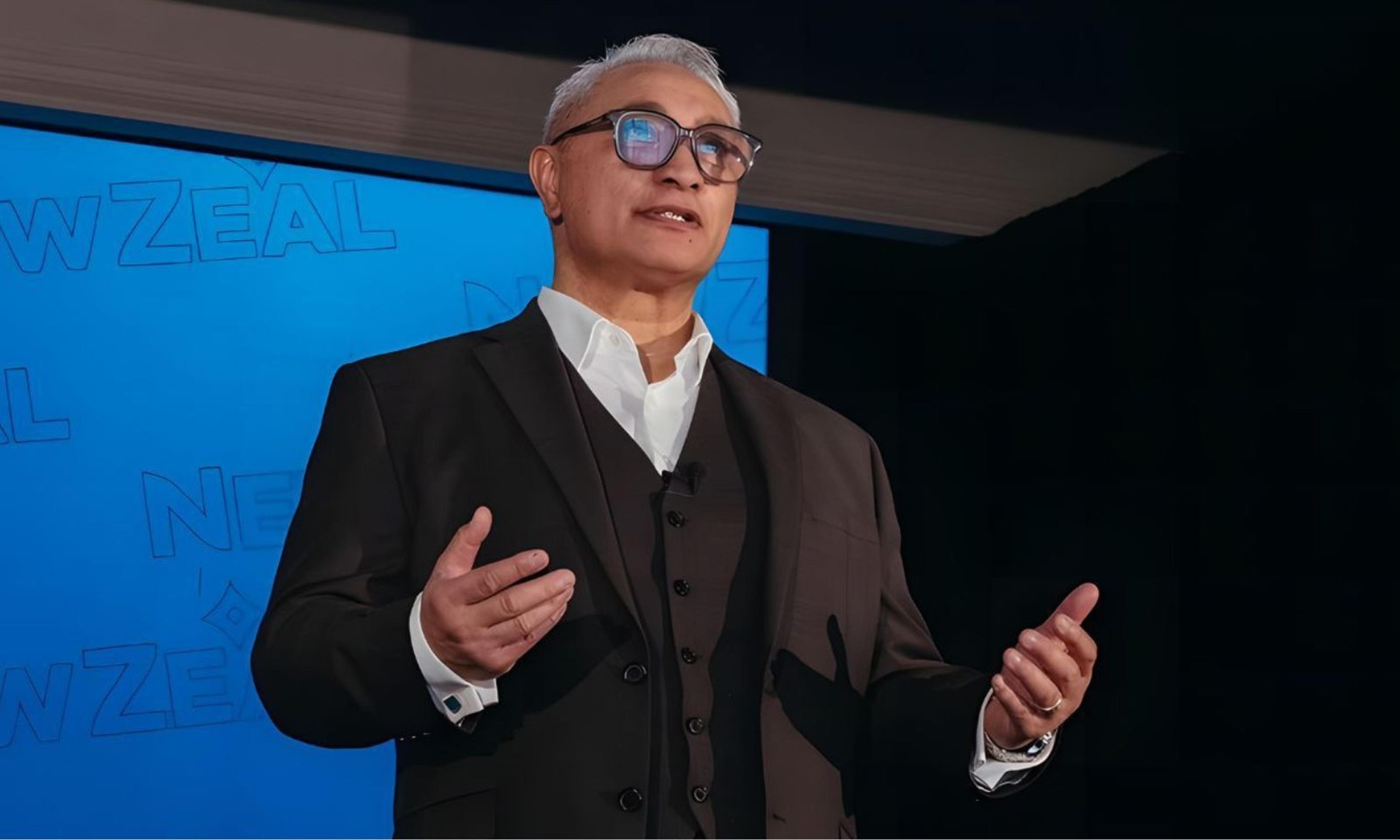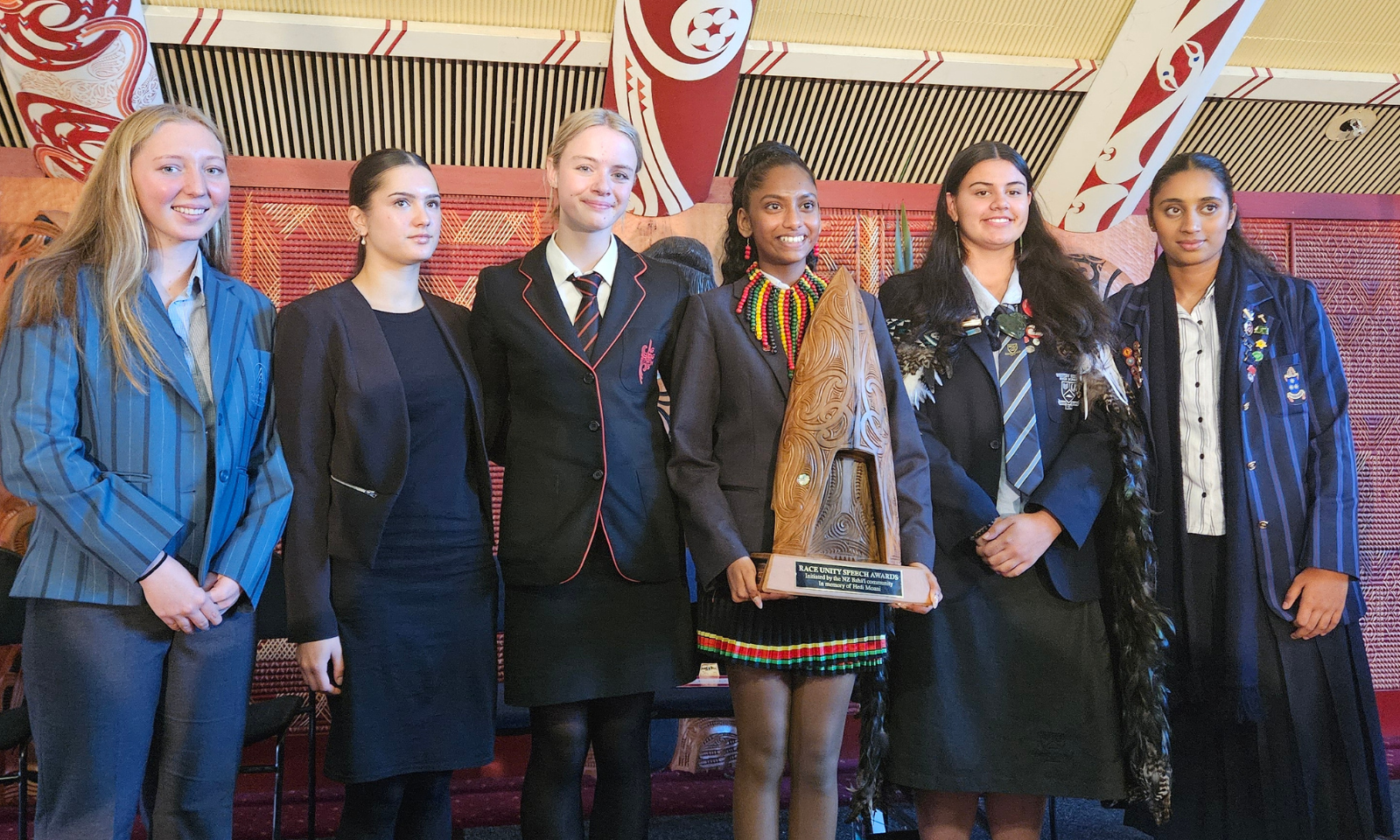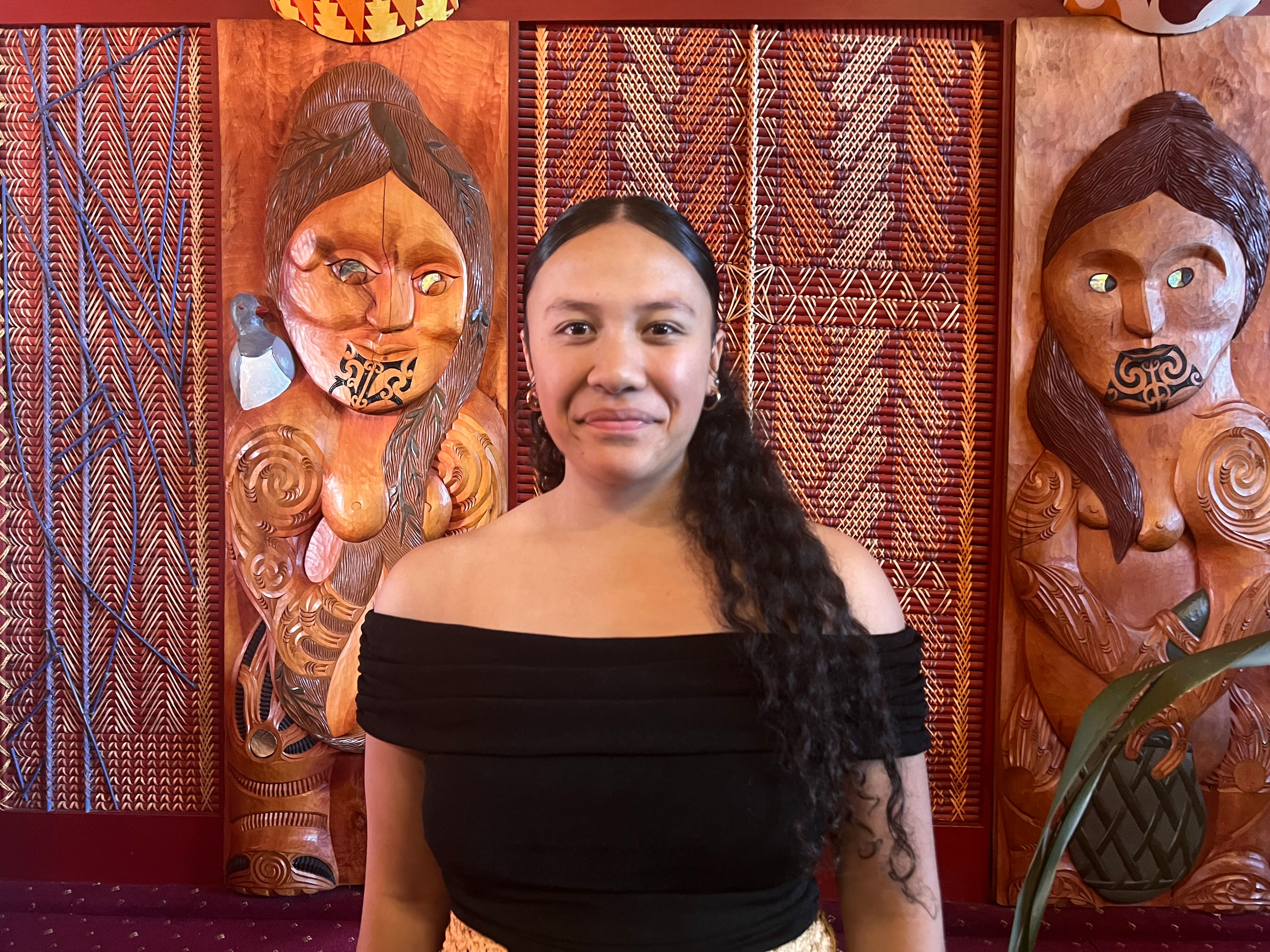

Chief Children’s Commissioner Dr Clare Akhmad, Race Unity Speech Awards winner Jordyn Joy Pillay, and Race Relations Commissioner Dr Melissa Darby at the 2025 finals held at Ngā Kete Wānanga Marae, Ōtara.
Photo/PMN News Mary Afemata
Top student's rallying call for unity: 'I'm tired of discrimination'
Jordyn Joy Pillay uses the Race Unity Speech Awards to send a message to our leaders: Make diversity a daily practice, not just a token gesture.



Community leaders back Aotearoa amid concerns over Cook Islands-China ties




Pacific leaders call for peace amid Middle East tensions as Melanesia eyes regional solidarity

Community leaders back Aotearoa amid concerns over Cook Islands-China ties


The teenage winner of the Race Unity Speech Awards has used her platform to lay down a challenge to those in power.
“Diversity should be more than just a moment,” Pillay said. “Diversity is everything… All of this, it means nothing if we cannot practise what we preach.”
Jordyn Joy Pillay, a Year 12 student at Ormiston Senior College in Auckland, won the title of national champion and the Tohu Whetumatarau – Ministry for Ethnic Communities Award for Vision.
The finals were hosted by Ngā Kete Wānanga Marae at Manukau Institute of Technology’s Ōtara campus.
Pillay was chosen as the winner over the weekend after competing with six female finalists.
“Diversity should be more than just a moment,” Pillay said. “Diversity is everything… All of this, it means nothing if we cannot practise what we preach.”
Rather than settling for cultural weeks and symbolic gestures, Pillay called for student voice panels in schools, co-designed curriculums that reflect Aotearoa’s true diversity, and spaces where young people feel safe and heard.
“I am so sick and tired of the same discrimination that forced me, a new migrant just two years ago, to spend my lunchtime in the school toilet just to avoid the hateful comments.”
Chief Children’s Commissioner Dr Clare Akhmad served as master of ceremonies, guiding the audience through a morning of bold, solutions-driven speeches by rangatahi.
Akhmad said the rangatahi had not simply delivered performances, but presented a roadmap for decision-makers.
“And what I saw was that the messages of the rangatahi, they really were resonating and so now I really hope that they are taken forward in real action,” she said.
“Too often our mokopuna don’t have a say in the decisions that affect their daily lives,” she added. “Local councils, schools and government agencies need to be creating pathways for youth to participate, even before they are eligible to vote.”
She said platforms like the Race Unity Speech Awards help build that bridge. But the responsibility now sits with those in positions of power.

Group photo of finalists and esteemed leaders. Photo/PMN News Mary Afemata
Minister for Ethnic Communities Mark Mitchell, Race Relations Commissioner Dr Melissa Darby, NZ Police Deputy Chief Executive Jill Rogers and Police Superintendent Rakesh Naidoo were among those present.
Dr Darby said race unity helped to strengthen democracy.
"The broader the voices, the more diverse, and I guess the more opportunities we give and ensure that people have to have their voices heard, the better it is for all of us."
Her comments echoed Pillay’s message, that it was time to stop treating inclusion as a campaign and start treating it as everyday governance.

The six finalists for the 2025 Race Unity Speech Awards and Jordyn Joy Pillay named as the national champion. Photo/PMN News Mary Afemata
Jessica Tupai, last year’s Race Unity champion and now Youth MP for Wellington Central, said the competition helped her build the confidence to engage with government. However, many of her peers are still being left out.
“It’s not that we don’t care about politics. It’s often that no one explains it in a way we can understand or access,” she said. “Go to the schools. Talk with us, not at us.”
She said Pacific and Māori youth are often burdened with leadership responsibilities within their own communities but are still overlooked in formal civic spaces.
“We are orators. We are storytellers. Sharing our voice is how we give back.”

National Race Unity Speech Awards 2024 champion Jessica Tupai. Photo/PMN News Mary Afemata
Minister Mark Mitchell also acknowledged the critiques and said the government was listening. “Words are easy, but actions matter."
He acknowledged the powerful ideas shared by finalists, including pitches for virtual reality education and more culturally inclusive teaching, and said they deserved serious consideration.
Pillay ended her speech with a call for unity, not just in principle but in practice.
“I am the ocean. I am us. We are the ocean. Together we mean much. For my strength is not that of an individual, but rather that of the collective.”
LDR is local body journalism co-funded by RNZ and NZ On Air.
